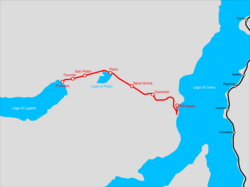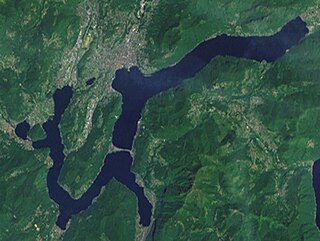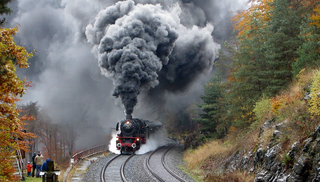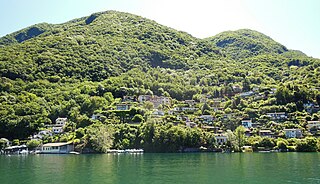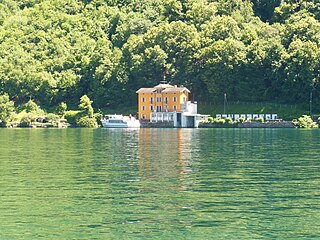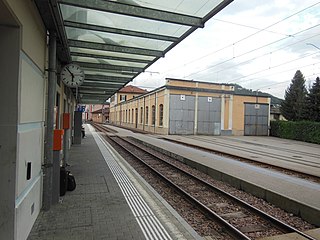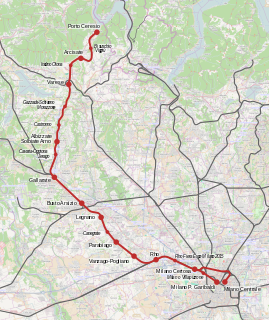| Menaggio–Porlezza railway | |||
|---|---|---|---|
| Overview | |||
| Status | Closed and removed | ||
| Locale | Province of Como, Lombardy, Italy | ||
| Termini | Menaggio Porlezza | ||
| Stations | 7 | ||
| Services | 1 | ||
| Operation | |||
| Opened | 1873 | ||
| Closed | 1939 | ||
| Technical | |||
| Line length | 12 km (7.5 mi) | ||
| Track gauge | 850 mm (2 ft 9 15⁄32 in) | ||
| |||
The Menaggio–Porlezza railway (Italian : Ferrovia Menaggio-Porlezza) was a railway in the Italian province of Como. The line connected the town of Menaggio, on Lake Como, with Porlezza, on Lake Lugano, and was built as part of a multi-modal transport link between Menaggio and Luino, on Lake Maggiore. [1] [2]

Italian is a Romance language of the Indo-European language family. Italian, together with Sardinian, is by most measures the closest language to Vulgar Latin of the Romance languages. Italian is an official language in Italy, Switzerland, San Marino and Vatican City. It has an official minority status in western Istria. It formerly had official status in Albania, Malta, Monaco, Montenegro (Kotor) and Greece, and is generally understood in Corsica and Savoie. It also used to be an official language in the former Italian East Africa and Italian North Africa, where it plays a significant role in various sectors. Italian is also spoken by large expatriate communities in the Americas and Australia. In spite of not existing any Italian community in their respective national territories and of not being spoken at any level, Italian is included de jure, but not de facto, between the recognized minority languages of Bosnia-Herzegovina and Romania. Many speakers of Italian are native bilinguals of both standardized Italian and other regional languages.

Italy, officially the Italian Republic, is a country in Southern Europe. Located in the middle of the Mediterranean Sea, Italy shares open land borders with France, Switzerland, Austria, Slovenia and the enclaved microstates San Marino and Vatican City, as well as a maritime border with Croatia. Italy covers an area of 301,340 km2 (116,350 sq mi) and has a largely temperate seasonal and Mediterranean climate. With around 61 million inhabitants, it is the fourth-most populous EU member state and the most populous country in Southern Europe.

The Province of Como is a province in the north of the Lombardy region of Italy and borders the Swiss cantons of Ticino and Grigioni to the North, the Italian provinces of Sondrio and Lecco to the East, the Province of Monza and Brianza to the south and the Province of Varese to the West. The city of Como is its capital — other large towns, with more than 10,000 inhabitants, include Cantù, Erba, Mariano Comense and Olgiate Comasco. Campione d'Italia also belongs to the province and is enclaved in the Swiss canton of Ticino.
